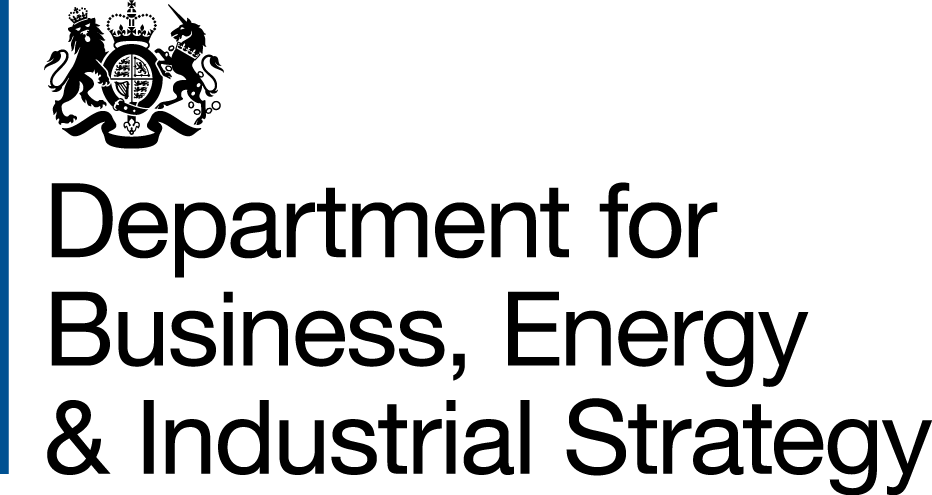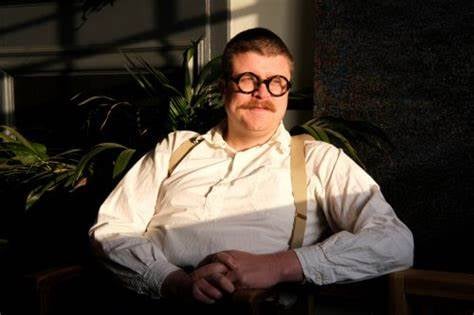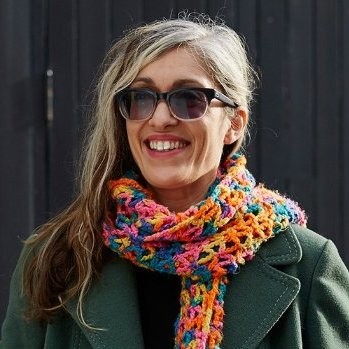Living With Gas
A collaborative project exploring cultural and social factors in energy adaptation and retrofit for Net Zero.



Our challenge
If we are to achieve Net Zero in the UK by 2050, we will need to move away from domestic natural gas use. Perhaps the greatest challenge of all sector transitions, for most homes this will mean the installation of new equipment and better insulation, often with high upfront costs and great uncertainty over the best technologies to employ.
Meanwhile, policy research has tended to focus on new technologies and systems of supply, leaving a gap in knowledge about everyday practices. Actions of homeowners tend to be especially narrowly conceived, without a full account of the emotional and embedded cultural tropes which shape their behaviour. In the pursuit of a transition away from natural gas, material, economic, and technological factors are only part of what must be addressed.
Can we learn from history?
This would not be the first time UK homes have switched from one fuel to another. In the ten years running up to 1977, more than 13 million converted to natural gas (not to mention 650 thousand commercial and industrial consumers).
Sir Dennis Rooke, Chairman of the British Gas Corporation, claimed the process “perhaps the greatest peacetime operation in this nation’s history.” Today the Climate Change Committee (CCC) estimates over twice this number will need converting to be net zero ready at 28 million.
As they both involve millions of homes converting to a new technology, the transition to natural gas and net zero would appear similar. However, the latter is more challenging in almost every way. It presents an even greater coordination challenge, with investment in heat efficiency and low-carbon technologies, across a larger number of properties and over a longer period.
Why this project?
The social sciences and humanities have a vital role to play in the development of solutions to real-world problems. In the case of the critical transition in domestic energy use, the challenge is not only one of infrastructure and behaviour but also culture. A better understanding of the relationship between householders and domestic energy will produce a more effective communications strategy to support such momentous change.
A collaboration with commercial market research agency Space Doctors, who specialise in machine learning enabled cultural analysis, this project will produce novel approaches to analysing complex SHAPE data that learn from commercially developed methods. In turn it will produce communications strategies informed by a more complex and nuanced approach to culture than is normally achievable within a commercial context.
Working together, Space Doctors and Sam developed a data set combining archival, qualitative and machine learning analysis of contemporary media to show the importance of cultural attitudes in shaping the energy transition.
A unique approach
When academics find research users, there is a tendency to focus on decision-making stakeholders such as local government manufacturers and service providers. Delivering strategies to influence behaviour, however, almost always includes significant input from creative, communications and market research consultancies. This is especially true with SHAPE subjects, as so many are trained in social sciences and humanities; meaning academic training directly influences their expertise and practise. As a result, there is a major opportunity for knowledge exchange between academic and commercial worlds, shaping both the research and its outcomes.
In the case of this project, an experimental approach to data processing was taken, using tags and codes as well as a narrative ethnographic style of notetaking. This generated new ways to incorporate cultural data into machine learning assisted analysis.
![Gaseous Data (v.1.0)[24]_Page_01_s](https://5004138.fs1.hubspotusercontent-na1.net/hub/5004138/hubfs/THE%20Awards/Gaseous%20Data%20(v.1.0)%5B24%5D_Page_01_s.jpg?width=1200&length=1200&name=Gaseous%20Data%20(v.1.0)%5B24%5D_Page_01_s.jpg)
![Gaseous Data (v.1.0)[24]_Page_02_s](https://5004138.fs1.hubspotusercontent-na1.net/hub/5004138/hubfs/THE%20Awards/Gaseous%20Data%20(v.1.0)%5B24%5D_Page_02_s.jpg?width=1200&length=1200&name=Gaseous%20Data%20(v.1.0)%5B24%5D_Page_02_s.jpg)
![Gaseous Data (v.1.0)[24]_Page_03_s](https://5004138.fs1.hubspotusercontent-na1.net/hub/5004138/hubfs/THE%20Awards/Gaseous%20Data%20(v.1.0)%5B24%5D_Page_03_s.jpg?width=1200&length=1200&name=Gaseous%20Data%20(v.1.0)%5B24%5D_Page_03_s.jpg)
![Gaseous Data (v.1.0)[24]_Page_04_s](https://5004138.fs1.hubspotusercontent-na1.net/hub/5004138/hubfs/THE%20Awards/Gaseous%20Data%20(v.1.0)%5B24%5D_Page_04_s.jpg?width=1200&length=1200&name=Gaseous%20Data%20(v.1.0)%5B24%5D_Page_04_s.jpg)
![Gaseous Data (v.1.0)[24]_Page_05_s](https://5004138.fs1.hubspotusercontent-na1.net/hub/5004138/hubfs/THE%20Awards/Gaseous%20Data%20(v.1.0)%5B24%5D_Page_05_s.jpg?width=1200&length=1200&name=Gaseous%20Data%20(v.1.0)%5B24%5D_Page_05_s.jpg)
![Gaseous Data (v.1.0)[24]_Page_06_s](https://5004138.fs1.hubspotusercontent-na1.net/hub/5004138/hubfs/THE%20Awards/Gaseous%20Data%20(v.1.0)%5B24%5D_Page_06_s.jpg?width=1200&length=1200&name=Gaseous%20Data%20(v.1.0)%5B24%5D_Page_06_s.jpg)
![Gaseous Data (v.1.0)[24]_Page_07_s](https://5004138.fs1.hubspotusercontent-na1.net/hub/5004138/hubfs/THE%20Awards/Gaseous%20Data%20(v.1.0)%5B24%5D_Page_07_s.jpg?width=1200&length=1200&name=Gaseous%20Data%20(v.1.0)%5B24%5D_Page_07_s.jpg)
![Gaseous Data (v.1.0)[24]_Page_08_s](https://5004138.fs1.hubspotusercontent-na1.net/hub/5004138/hubfs/THE%20Awards/Gaseous%20Data%20(v.1.0)%5B24%5D_Page_08_s.jpg?width=1200&length=1200&name=Gaseous%20Data%20(v.1.0)%5B24%5D_Page_08_s.jpg)
![Gaseous Data (v.1.0)[24]_Page_09_s](https://5004138.fs1.hubspotusercontent-na1.net/hub/5004138/hubfs/THE%20Awards/Gaseous%20Data%20(v.1.0)%5B24%5D_Page_09_s.jpg?width=1200&length=1200&name=Gaseous%20Data%20(v.1.0)%5B24%5D_Page_09_s.jpg)
![Gaseous Data (v.1.0)[24]_Page_10_s](https://5004138.fs1.hubspotusercontent-na1.net/hub/5004138/hubfs/THE%20Awards/Gaseous%20Data%20(v.1.0)%5B24%5D_Page_10_s.jpg?width=1200&length=1200&name=Gaseous%20Data%20(v.1.0)%5B24%5D_Page_10_s.jpg)
What did this project discover?
Combining historical research, qualitative interviews and machine learning, this project has delivered a set of insights into the cultural relationship British people have with gas and heat in their homes; helping to shape how homeowners and tenants engage with retrofit and energy adaptation for net zero.
Archival
research
found that cultural attitudes to natural gas and heat in the home are engrained and illustrate the influence of historical communication.
Machine
Learning
Analysis of contemporary media showed that the response to current heat technologies is emotional, and that engagement with the technologies identified for future transition are poorly understood and lack engagement.
Qualitative
research
demonstrated a sense of betrayal amongst householders enduring the current cost of living crisis, and a desire to both regain control and trust the ability of their homes to keep them warm in the future.
In practical terms, we now understand...
-
Why householders may be reluctant to change how they heat their homes, and how we should present new technologies to reassure them and build trust for future de-carbonisation efforts.
-
How we should prioritise communications that prove how de-carbonising the home can provide a transformed domestic environment; one where people are protected from cold and damp and can trust their domestic environment to provide them with security and comfort.
What have we done with these findings?
Through two workshops (image right), a newsletter and report, we have shared these findings with the Greater London Authority, several London borough housing teams, a Manchester-based carbon co-operative and the public (including through the BBC/AHRC New Generation Thinkers scheme).
Workshops offered the chance to think strategically about how best to engage householders and tenants; and build a relationship of trust about retrofit and energy adaptation. Impact ranged from specific ideas about tweaking language used in communications to fresh perspectives on what people wanted out of energy adaptation.
Preliminary findings were shared through a Substack newsletter, helping to build an audience of research users as the project progressed.










-
The project has led to follow-on work (through the British Academy) to evaluate the GLA’s Warmer Homes scheme, showing the potential of this strand of research to reshape approaches to policy on local and national stages.
-
Space Doctors’ machine learning approach to media analysis produced a large and valuable dataset which added substance to the findings, which in turn established the need to build a richer world of meaning and emotion around new heat technologies if we are to bring about a just transition to de-carbonised home energy.
-
The archival research and longitudinal approach to the research questions further generated novel insights into how we think about contemporary communications challenges which may then shape our approach to commercial challenges in the future.

Sam Johnson-Schlee
BBC New Generation Thinker, author of Living Rooms and Senior Lecturer in the Department of Social Science at LSBU, Sam Johnson-Schlee writes non-fiction and memoirs about the politics and culture of everyday life. He is interested in how paying attention to familiar objects and practices can open up new perspectives on the world we live in.
Sam is intrigued by the social history of central heating, how it has changed what we do in the home, and why climate change and global geopolitics are leading to questions about its future.
About the domestic interior, what it feels like to live inside a commodity, and how we dream of something better from within the home, Sam's first book LIVING ROOMS was published by Peninsula Press in November 2022.
Space Doctors (Cato Hunt)
Experts in cultural analysis, communication and marketing strategy, one of the founders of Space Doctors was a Shakespeare scholar who applied semiotic and literary analysis to brand communications. This legacy of engagement with SHAPE subjects continues to influence their approach.
Having worked with BEIS, Microsoft and many other clients who manage complex systems, they have adapted and developed a wide range of agile and efficient techniques for cultural analysis which stem from a need to operate effectively in a commercial environment.


British Academy
The British Academy has been funded by the UK's Department for Business, Energy and Industrial Strategy (BEIS) to continue its support of a new scheme, the Innovation Fellowships.
The Innovation Fellowships scheme is a dual-route scheme designed to enable researchers in the humanities and social sciences to partner with organisations and business in the creative and cultural, public, private and policy sectors to address challenges that require innovative approaches and solutions. Both routes require an established researcher to work with a UK-based partner organisation on a specified policy or societal challenge that contributes to the aims of the scheme for a period of up to one year.
"Sam Johnson-Schlee is a virtuosic critic, a detective versed in Marx and Freud. It’s impossible to feel the same way about your home and how you furnish it after reading this joyful, revalatory, astounding book."
